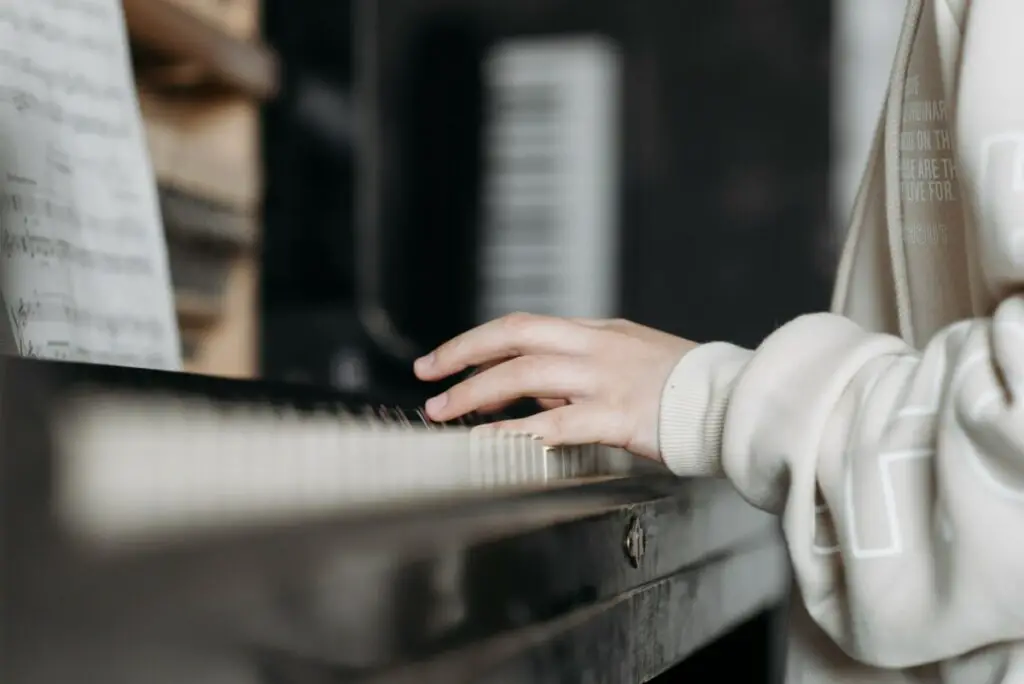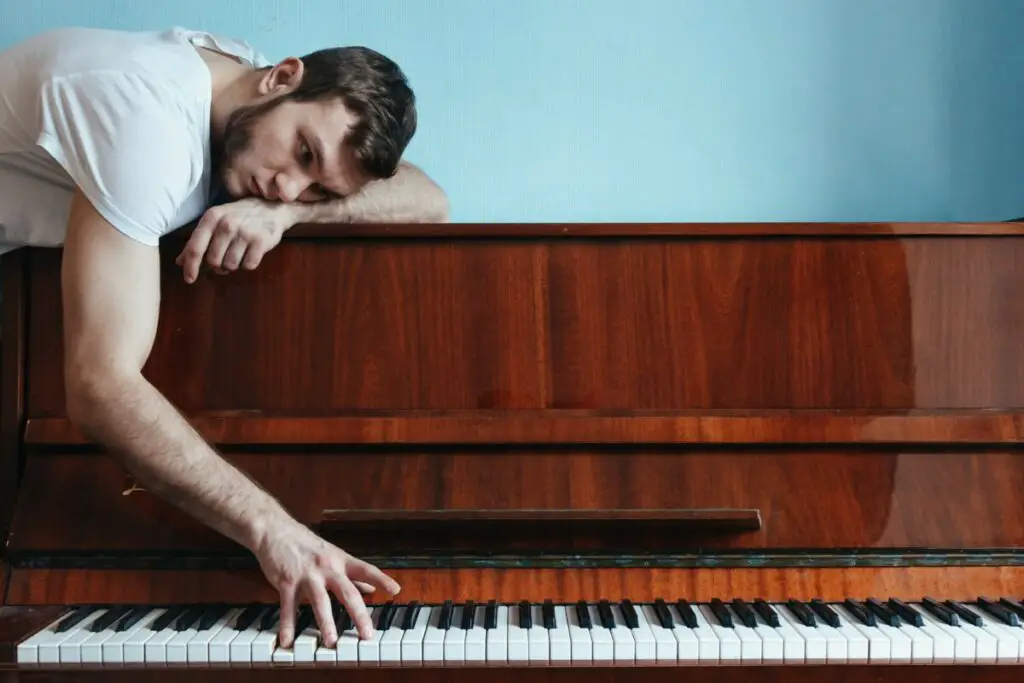This post contains affiliate links.

You’ve probably been taking piano lessons for a couple of years now. And as you gradually get better at the art, at some point during your journey, you must have wondered: when is the right time to part ways with your teacher and stop taking piano lessons?
As a general rule, stop taking piano lessons when you believe that you have learnt what you want to learn or that your current teacher can no longer help you get closer to your playing goals. When that happens, it may be a good idea to consider switching to another teacher.
This article will list some factors to consider before deciding to stop taking piano lessons along with some common questions about taking piano lessons in general like how long does it take to master the piano and how to tell your piano teacher you want to stop taking lessons with them.
When to stop taking piano lessons
There are 3 factors to take into consideration before making a decision:
What final goal do you want to achieve?
Depending on your final goal as a pianist, you may decide to stop taking piano lessons at different points in time during your journey. Some people may just want to be able to read piano music sheets and play the piano leisurely, while others want to reach the performance level and strive for the highest heights and standards in piano playing.
Knowing what kind of pianist you want to be will help you plan out the necessary steps and estimate the time those steps may take to reach that goal.
Financial situation
Historically speaking, throughout the 300 years of existence of the piano, it was a very exclusive instrument, a symbol of class and status that has only been available to rich people or the upper class of society – aristocrats and royalties.
Nowadays, anyone can buy a cheap Casio electric keyboard and start playing Twinkle twinkle little star in as little as 30 minutes. Imagine what the likes of Mozart and Beethoven would think if they are alive today to see how popular and accessible the instrument has become!
This also means that piano lessons costs have gone down over the years. However, $40-$50 for a 30 minutes piano lesson is not an amount to sneeze at. Take a look at your finance and see if you still have enough disposable income after paying your bills and necessities. You may also need to adjust your spending habits if you want to continue taking piano lessons.
Your skills playing the piano
Think of the skills you have gained playing the piano over the years, do you consider that enough to play the pieces or songs you want, or do you want to keep going and keep polishing and improving your technique?
If you are satisfied with what you have, by all means, you can stop taking piano lessons and enjoy playing your favourite songs. Or if you think that your current teacher can’t provide you with what you want, be it a challenge, the motivation to play piano, or a suitable practice regiment for your playing style, consider switching to another teacher.
It’s important to keep in mind that if you do decide to stop taking piano lessons, don’t stop playing the piano. Learning music is a lifelong process, there is always room for improvement and learning new things, and the moment you stop playing, you’ll lose all the skills earned through your sweat, blood and time.
The importance of choosing the right piano teacher
A piano teacher can make or break your experience with a piano.
The best teacher will want the best for you, encourage you on your journey and constantly challenge you while adapting to your playstyle and your external life circumstance to give you the most enjoyable experience, while also pushing you to improve your playing.
Bad teachers, on the other hand, will make you feel frustrated that you aren’t progressing at the rate that you want, or that you are sick of all the constant practicing all the time. In extreme cases, this can even cause you to hate the piano permanently.
I personally know some of my friends who reached level 10 in RCM – the most pristine standard in piano playing, having it makes you qualified to teach beginner students – at their teenage years, only to drop piano and never touch it again, because they were forced to take lessons by their parents along with their teachers constantly drilling technique regiments and piano pieces that they weren’t passionate about.

How long does it take to reach mastery in piano?
The RCM (Royal Conservatory of Music) Certificate Program is considered one of the top music education systems worldwide. The program provides students with well-rounded music training, from beginners to advanced level (1-10).
This system gives us a rough estimate of the time needed for the complete mastery of the piano.
Based on this system, with each subsequent level being twice as hard as the previous, it takes roughly 15 years of solid work to complete all 10 levels, with each level needing a year and the later levels, especially 8,9,10 needing more than 1 year each to complete.
There isn’t much difference in levels 1,2,3, it’s level 4 that things start to get more complex. Once you reach the later levels, the amount of work, effort, practice and skills required will become more apparent.
Keep in mind that 15 years is a rough estimation. Some people will achieve it quicker than others. For example, children learn quicker compared to adults, although adults have higher motivation and concentration going for them. Some people are also just more naturally gifted compared to others.
How to tell your teacher you want to quit the piano?
Let your piano teacher know ahead of time when you plan to stop taking piano lessons with them. Share your reason with them if you’re comfortable doing so. Thank them for their time and efforts spent teaching for however long they’ve been teaching you. Most teachers are understanding and won’t pry deeper into your reasons for quitting piano lessons.

